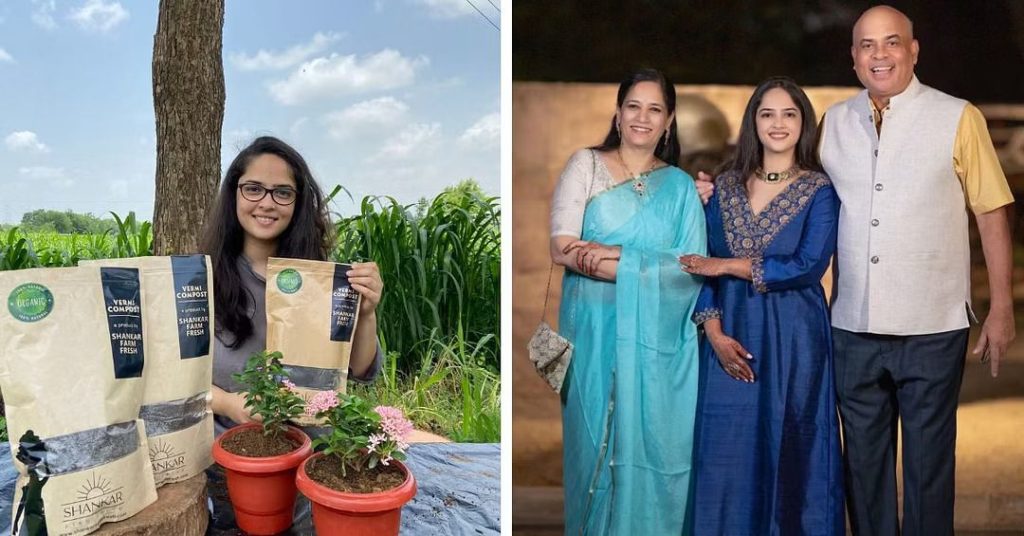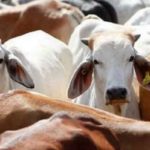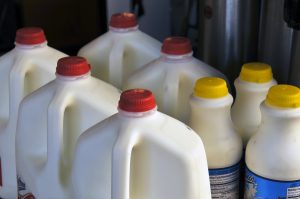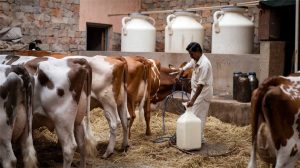
Shankar Farms was started in 2012 with her father Vikram Pandya overseeing the operations. As a part-time businessman and a part-time farmer, he was passionate to see the organic farming boom. But as Kalyani recounts, even while the venture had a customer base that loved its products, they were not doing a lot commercially in terms of sales and branding.
All this time, she had been in London pursuing her master’s in law, following which she returned to India. “I was working in the corporate sector for a year, but I felt like I had another calling. So I quit my job and returned to Baroda,” she notes, adding that whilst in her hometown, she began exploring the family venture and the scope it had.
‘One product changed everything’
“I noticed that there were several areas where we could improve. While the venture was at the time unprofitable, I decided to put it on the map,” she says.
And in 2019, the first step that Kalyani decided would be to brand their ghee and add it to their existing range of products.
“I began selling our branded ghee on Amazon and other retail stores and ran online ads in 2020. The entire process, from when I started to when the product hit the shelves, took me a year and a half,” she says.
In retrospect, Kalyani says she realises that she entered the market at a lucrative time when everyone was shifting their sights to organic due to the pandemic. “Coupled with the packaging, USP, and how I positioned the brand, we stood out among the other brands in the market.”
The response they received was fantastic, she recounts.
“We had been doing organic farming and dairy farming much before this. We have over 100 cows and have been using cow dung as a fertiliser…we have always focused on sustainable ways of growing. So, there was nothing much different in what and how we did things…the only difference was that we decided to brand the ghee,” she notes.
But, she adds that there were a few points to address in order to appeal to consumers.
“In my opinion and through what I have witnessed growing up in a farming state, the milk of Gir cows is preferred for ghee as people presume that this is the best for its creamier milk and richer smell. But in addition to Gir cows, we also have Kankrej and Lal cows. Hence to pitch to a market that was under the notion that Gir cows are the only ones suitable for ghee was tough, but we decided honesty was the best strategy,” says Kalyani, adding that this move worked in their favour.
“I believe once people began tasting our ghee, they began loving it, and their perception gradually changed. The ghee, they say, tastes better than even some brands that only make ghee from Gir cows,” she says, adding that this good quality ghee is due to the organically grown fodder that they feed the cows.
One of the consumers, Shankar Bhatt, affirms this. “I bought this ghee for my mom who was looking for A2 cow ghee and one that had a good texture and natural yellow colour. My mom loved this product, and I will buy another bottle as soon as this one is over!”
An additional step Kalyani says she took was lab testing the cows in order to certify them as A2. “This essentially involves testing blood samples of the animals, after which they are either classified as A1 (cows of western origin such as Holstein, Jersey, etc) or A2 (desi cows said to have superior quality milk according to studies). This certification helped me market my products better,” says Kalyani.
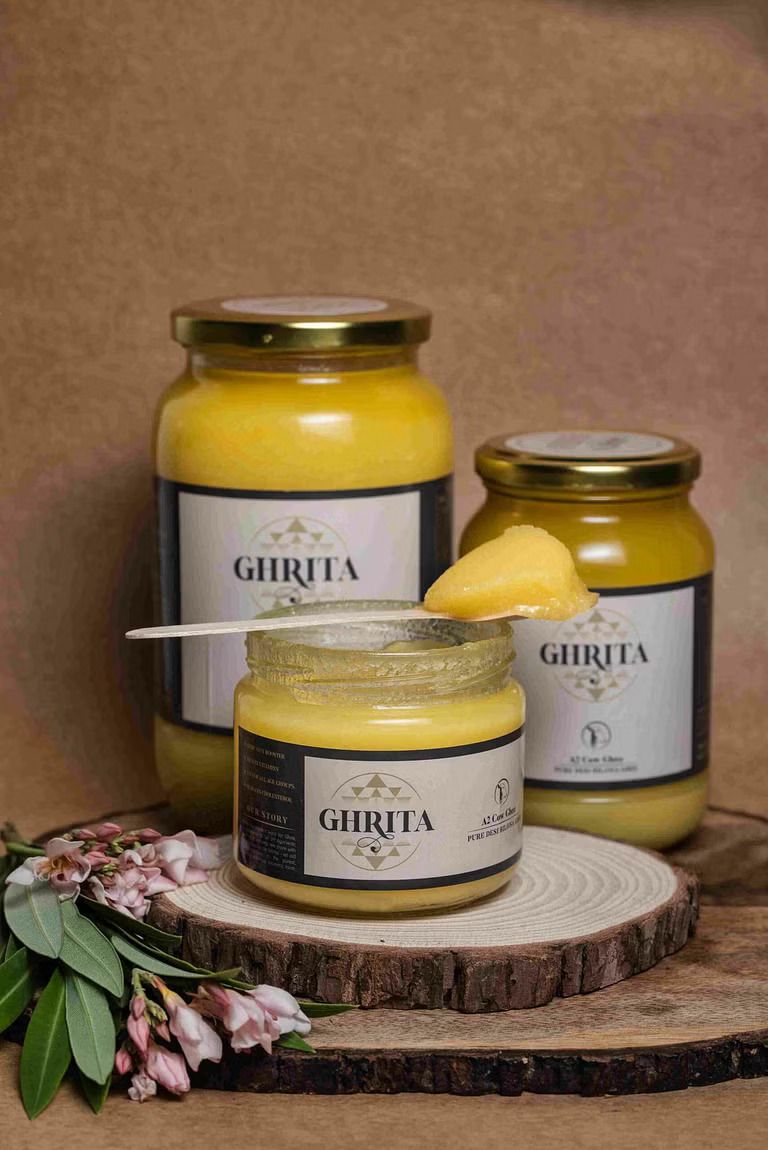
Building an organic dream
Today, Shankar Farms is abounding not just in dairy but also in vegetable farming. A group of 12 farmers work on the three-acre land and Kalyani says that they grow enough to match their consumption, while the excess is given to the staff.
Their range of products includes methi (fenugreek), bhindi (ladyfinger), tindora (ivy gourd), papdi (green flat beans), rice, wheat, bajra (pearl millet), chickoo, guava, pears, and more. Shedding light on the other products that they retail, Kalyani says that they also sell vermicompost and dhoop (incense) sticks.
They also sell unpasteurised milk in Vadodara that lasts for three hours post-milking. “We currently distribute this to 60 households from our manufacturing unit that is located in the Anand district. The ghee we make is sold in Mumbai, Delhi, Bengaluru, Hyderabad, Ahmedabad, etc, and we sell approximately 50 litres a month”.
The brand clocked a turnover of “Rs 15 lakh in the last financial year”.
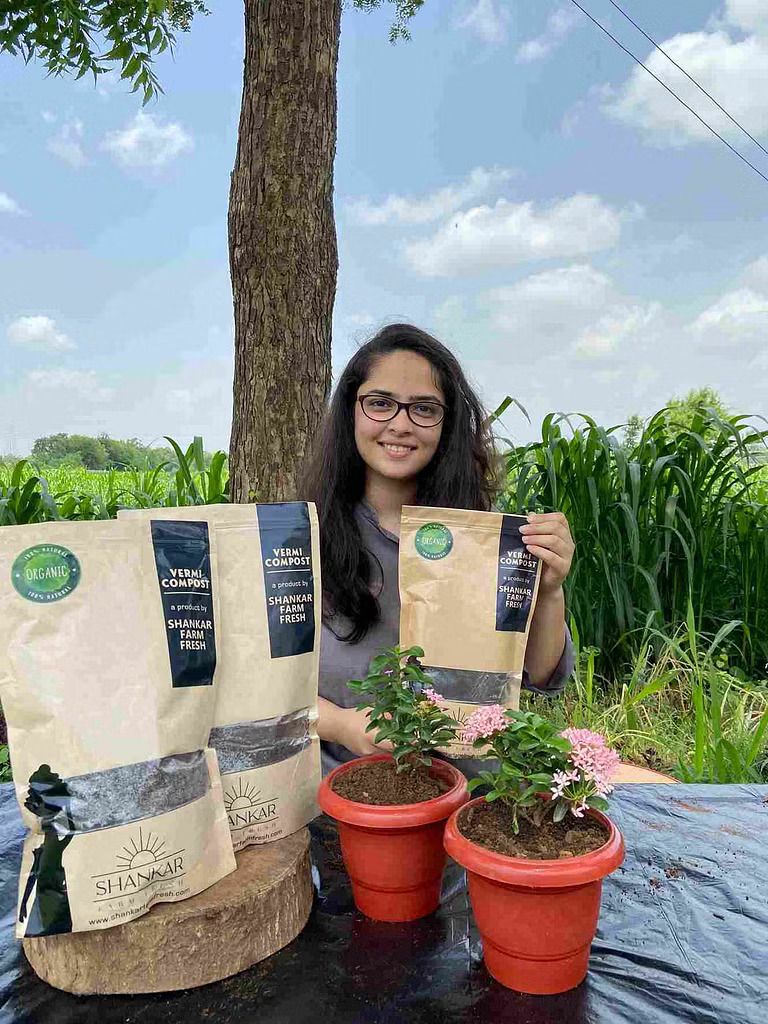
Looking back at the journey until now, Kalyani says she is grateful. “I personally think that if you have the basic comforts of life, you should get back to your roots. There is a lot of satisfaction in being connected to nature and helping others earn through your venture. When people ask me why I left London to come back to my hometown, I say I wasn’t forced to do this, rather I chose to do this,” she shares.
She adds that while the job does give her satisfaction, it isn’t always glamorous. “Sometimes being a 29-year-old, I feel like going out on a Saturday evening, but often can’t. But being at the farm satisfies me a lot too. I took the risk to do organic farming, something that does not happen overnight.”
She says that even though she didn’t start the company, she has helped to take it to where it is now. “It’s sad to hear that a cow has a lumpy skin disease or an infection. Everything feels very personal now.” But all in all, Kalyani says the journey has been incredible.
Edited by Pranita Bhat
